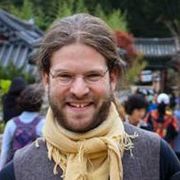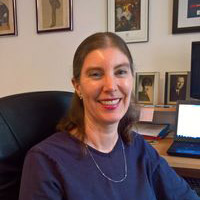Internationale Gastwissenschaftler*innen
Kontakt
Leitung
Wissenschaftlicher Mitarbeiter (beurlaubt)
Wissenschaftliche Mitarbeiterin
Wissenschaftliche Mitarbeiterin
Studentische Hilfskraft
Institutssekretariat
Internationale Gastwissenschaftler*innen
Dr. Sara Caputo, 2019

Magdalene College, Cambridge University (Großbritannien)
Sara Caputo is a social and cultural historian of eighteenth-century transnational migration and mobility. She is working on several projects, including a book on the history of foreign sailors in the British Navy, a transnational history of naval medicine, and two articles on eighteenth-century naval technology and cartography.
Áron Bence, 2018

ELTE Universität, Budapest (Ungarn)
Áron Bence war DAAD-Kontaktstipendiat der Carl von Ossietzky Universität Oldenburg und Gastmitarbeiter im "Prize Papers"-Projekt. Er schreibt seine Doktorarbeit in der frühneuzeitlichen Mentalitätsgeschichte mit dem Titel "Die Repräsentation des Anderen in europäischen gedruckten Narrativen des 16. Jahrhunderts". In diesem Zuge beschäftigt er sich mit kultureller Fremdheit, mit "transactional go-betweens" sowie mit europäischen Vorstellungen des Kannibalismus und der Hexerei. Seine methodologischen Schwerpunkte liegen in Erzähltheorien und in der globalen Mikrogeschichte.
Áron Bence ist Pfarrer der evangelisch-lutherischen Kirche in Ungarn.
Dr. Christina A. Ziegler-McPerson, 2018

Deutsches Schifffahrtsmuseum, Bremerhaven
Christina A. Ziegler-McPherson (PhD, UC Santa Barbara) is a visiting researcher at the Deutsches Schifffahrtsmuseum in Bremerhaven. Ziegler-McPherson is the author of Selling America: Immigration Promotion and the Settlement of the American Continent, 1607-1914 (Santa Barbara, CA: Praeger Press, 2017); Immigrants in Hoboken: One-Way Ticket, 1845-1985 (Charleston, SC: The History Press, 2011), and Americanization in the States: Immigrant Social Welfare Policy, Citizenship, and National Identity in the United States, 1908-1929 (Gainesville, FL: University Press of Florida, 2009). Ziegler-McPherson held a Fulbright Senior Scholar teaching/research fellowship at Universität Bremen in 2014-2015. Her research focuses on history and theory of migration, assimilation, community development, and national and ethnoracial identity; she also works as a museum curator. Christina Ziegler-McPherson visited the Carl von Ossietzky-University as a guest researcher in connection with the FLiF (Forschungsbasiertes Lernen im Fokus)-program for the internationalisation of research-oriented teaching.





